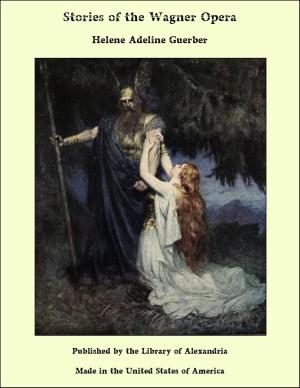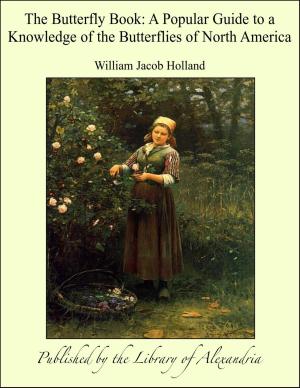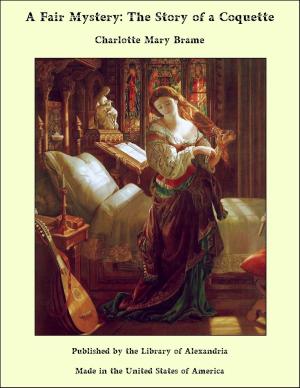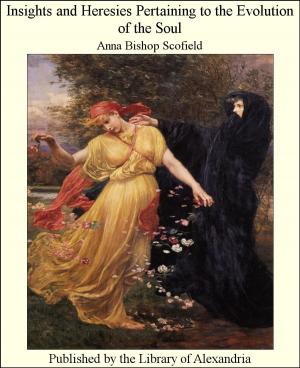Ladies and Gentlemen v. Players
Nonfiction, Religion & Spirituality, New Age, History, Fiction & Literature| Author: | Sir Pelham Grenville Wodehouse | ISBN: | 9781465540300 |
| Publisher: | Library of Alexandria | Publication: | March 8, 2015 |
| Imprint: | Language: | English |
| Author: | Sir Pelham Grenville Wodehouse |
| ISBN: | 9781465540300 |
| Publisher: | Library of Alexandria |
| Publication: | March 8, 2015 |
| Imprint: | |
| Language: | English |
Quite without meaning it, I really won the Gentlemen v. Players match the summer I was eighteen. They don’t say anything about me in the reports, but all the time I was really the thingummy — the iron hand behind the velvet glove, or something. That’s not it, but it’s something of the sort. What I mean is, if it hadn’t been for me, the Gentlemen would never have won. My cousin Bill admits this. I cut the report of the match out of the Telegraph. The part where I come into it begins like this: ‘… After lunch, however, a complete change comes over the game. A change frequently comes over a game of cricket after lunch, but it is usually to the disadvantage of the batting side. In this case, however, the reverse happened. Up to the interval the Gentlemen, who had gone in to make three hundred and fourteen in the fourth innings of the match, had succeeded in compiling one hundred and ten, losing in the process the valuable wickets of Fry, Jackson, Spooner, and MacLaren. As N. A. Knox, who had been sent in first on the previous evening to play out the twenty minutes that remained before the drawing of stumps, had succumbed to a combination of fading light and one of Hirst’s swervers in the last over on Friday, the Gentlemen, with five wickets in hand, were faced with the task of notching two hundred and four runs in order to secure the victory. At lunchtime the position seemed hopeless. Two hundred and four is not a large score as scores go nowadays; but against this had to be placed the fact that Batkins, the Sussex professional, who had been drafted into the team at the eleventh hour, was scoring the proverbial success which attends eleventh-hour choices. From the press box, indeed, his bowling during the half-dozen overs before lunch appeared literally unplayable. The ball with which he dismissed MacLaren must have come back three inches. The wicket, too, was giving him just that assistance which a fast bowler needs, and he would have been a courageous man who would have asserted that the Gentlemen might even yet make a game of it. Immediately upon the re-start, however, the fortunes of the game veered completely round, Batkins’ deliveries were wild and inaccurate, and the two batsmen, Riddell and James Douglas, speedily took advantage of this slice of luck. So much at home did they become that, scoring at a rapid rate, they remained together till the match was won, the Oxonian making the winning hit shortly before a quarter to six. The crowd, which was one of the largest we have ever seen at a Gentlemen v. Players match, cheered this wonderful performance to the echo. Douglas, the alteration in whose scholastic duties enabled him for the first time to turn out for the Gentlemen, made a number of lovely strokes in the course of his eighty-one. But even his performance was eclipsed by Riddell’s great century. Without giving the semblance of a chance, he hit freely all round the wicket, two huge straight drives off successive balls from Batkins landing among the members’ seats. When next our cousins from “down under” pay us a visit, we shall be surprised if Riddell does not show them …’ The rest is all about what Bill will do when he plays against Australia. Riddell is Bill. He is Aunt Edith’s son, He is at New College, Oxford. Father says he is the best bat Oxford have had since he was up. But if you had seen him at lunch that day, you would never have dreamed of his making a century, or even double figures. If you read what I wrote once about a thing that happened at our cricket week, you will remember who Batkins is. He came down to play for Sir Edward Cave’s place against Much Middleford last year, and got everybody out except father, who made forty-nine not out. And he didn’t get father out because I got my maid Saunders, whom he was in love with, to get him to bowl easy to father so that he could make fifty. He didn’t make fifty, because the last man got out before he could; but it was all right. Anyhow, that’s who Batkins was
Quite without meaning it, I really won the Gentlemen v. Players match the summer I was eighteen. They don’t say anything about me in the reports, but all the time I was really the thingummy — the iron hand behind the velvet glove, or something. That’s not it, but it’s something of the sort. What I mean is, if it hadn’t been for me, the Gentlemen would never have won. My cousin Bill admits this. I cut the report of the match out of the Telegraph. The part where I come into it begins like this: ‘… After lunch, however, a complete change comes over the game. A change frequently comes over a game of cricket after lunch, but it is usually to the disadvantage of the batting side. In this case, however, the reverse happened. Up to the interval the Gentlemen, who had gone in to make three hundred and fourteen in the fourth innings of the match, had succeeded in compiling one hundred and ten, losing in the process the valuable wickets of Fry, Jackson, Spooner, and MacLaren. As N. A. Knox, who had been sent in first on the previous evening to play out the twenty minutes that remained before the drawing of stumps, had succumbed to a combination of fading light and one of Hirst’s swervers in the last over on Friday, the Gentlemen, with five wickets in hand, were faced with the task of notching two hundred and four runs in order to secure the victory. At lunchtime the position seemed hopeless. Two hundred and four is not a large score as scores go nowadays; but against this had to be placed the fact that Batkins, the Sussex professional, who had been drafted into the team at the eleventh hour, was scoring the proverbial success which attends eleventh-hour choices. From the press box, indeed, his bowling during the half-dozen overs before lunch appeared literally unplayable. The ball with which he dismissed MacLaren must have come back three inches. The wicket, too, was giving him just that assistance which a fast bowler needs, and he would have been a courageous man who would have asserted that the Gentlemen might even yet make a game of it. Immediately upon the re-start, however, the fortunes of the game veered completely round, Batkins’ deliveries were wild and inaccurate, and the two batsmen, Riddell and James Douglas, speedily took advantage of this slice of luck. So much at home did they become that, scoring at a rapid rate, they remained together till the match was won, the Oxonian making the winning hit shortly before a quarter to six. The crowd, which was one of the largest we have ever seen at a Gentlemen v. Players match, cheered this wonderful performance to the echo. Douglas, the alteration in whose scholastic duties enabled him for the first time to turn out for the Gentlemen, made a number of lovely strokes in the course of his eighty-one. But even his performance was eclipsed by Riddell’s great century. Without giving the semblance of a chance, he hit freely all round the wicket, two huge straight drives off successive balls from Batkins landing among the members’ seats. When next our cousins from “down under” pay us a visit, we shall be surprised if Riddell does not show them …’ The rest is all about what Bill will do when he plays against Australia. Riddell is Bill. He is Aunt Edith’s son, He is at New College, Oxford. Father says he is the best bat Oxford have had since he was up. But if you had seen him at lunch that day, you would never have dreamed of his making a century, or even double figures. If you read what I wrote once about a thing that happened at our cricket week, you will remember who Batkins is. He came down to play for Sir Edward Cave’s place against Much Middleford last year, and got everybody out except father, who made forty-nine not out. And he didn’t get father out because I got my maid Saunders, whom he was in love with, to get him to bowl easy to father so that he could make fifty. He didn’t make fifty, because the last man got out before he could; but it was all right. Anyhow, that’s who Batkins was















